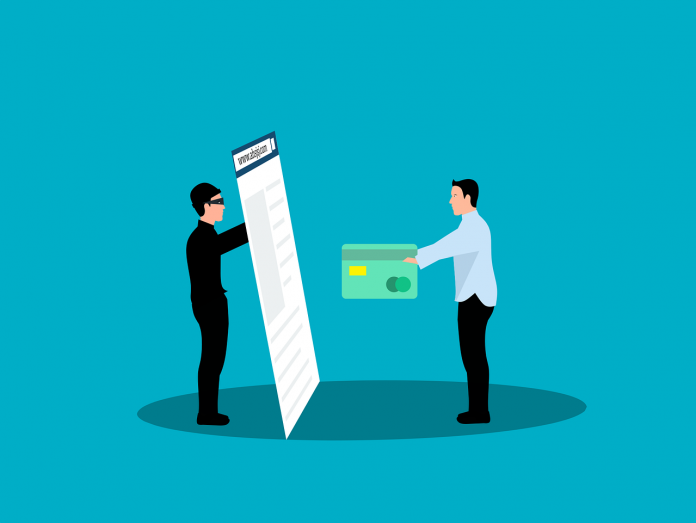Use these fraud-detection and prevention strategies to keep your money out of the hands of thieves. According to the current information provided by the most reliable scam information website – Chargebacking, fraudulent activity is a lucrative business which is on a rapid rise and we must all equip ourselves to fight against it. Here are some suggestions for detecting and preventing fraud as indicated by the expert team of Chargebacking.
Table of Contents
1. Shut down all communication
Are you weary of a seemingly too-good-to-be-true deal or a fundraising call? Don’t take any risks. Close the door after deleting the email, recycling the fax or letter, hanging up the phone, or saying “no, thank you.” You can even add certain obstacles to the procedure, such as a call display on your phone, a peephole in your door, and an email spam filter.
Many individuals are terrified about offending solicitors, but keep in mind that you owe them nothing, including your time and attention.
2. Make inquiries
It’s not always easy to check whether a request or company is authentic. Crooks have been known to take on the names of well-known companies and act as employees of financial institutions. Phishing emails, which are designed to trick you into entering your financial information into an online form, are becoming increasingly realistic in appearance.
3. Be aware of their strategies
There are many various types of scams and methods for deploying them, but there are some similar threads that you’ll find. Aside from a lack of knowledge, keep an eye out for:
– In order to claim a prize or apply for a job, you must pay in advance or pay with insecure means such as cash or money order.
– You’re solicited for personal or financial information, such as your social security number, that you shouldn’t give out.
– Sales methods that put you under a lot of pressure.
– Excessive emotional appeals
— Offers that are too good to be true, such as a high salary for a job that requires no skills or expertise.
4. Make the first contact
Rather than responding to solicitations, take the initiative and contact groups on your own. If you’re looking for a new long-distance calling plan, for example, contact firms to learn about their special offers. If you want to donate, contact the charity directly; you’ll save the charity money by avoiding the use of expensive fundraising firms.
5. Keep your personal information private
Your financial information can be used to conduct identity fraud, and criminals are constantly coming up with new ways to obtain it. Worse, willingly sharing sensitive data such as your personal identification number (PIN) may nullify any protection provided by your bank or credit card provider.
Knowing when to share and when to keep your information to yourself is your best defense. Consider the following example:
– Employers only require your social security number once you’ve been hired, but job fraudsters want it right away.
– No one, not even your bank, needs to know your PIN. You should never disclose it with friends or relatives, and you should always input it while shielding the keypad.
6. Use caution when surfing
Scammers are drawn to new technology as well, and malware can be used to follow and steal your personal information. Installing a firewall to secure your wireless network and running a virus scanner on a regular basis are both recommended by experts. Invites to click on links or download free software or files should be avoided since they could expose you to infection.
Also, keep in mind that free wireless internet connection and shared laptops may not be as secure as you believe when you’re out and about. A thief can set up their own wi-fi network and grab people’s information when they use it by accident with very little equipment and effort. Even information stored in a shared computer’s internet browser can be beneficial to criminals.
7. Pay attention to the details
You may not know how you got caught, but if you review your financial statements on a regular basis, you’ll soon see the problem. Reporting the situation as soon as possible might help you avoid further harm and headaches. Experts also recommend that you purchase your free TransUnion and Equifax credit reports once a year to ensure that your good name is protected.
A noticeable rise in calls, emails or other solicitations is another clue you or someone you know has been a victim. Crooks are eager to replicate their success, and they will discuss and sell the names of their victims.
8. Keep yourself up to date
Do you know what kinds of frauds are going on in your neighborhood or how to avoid fraud and identity theft? Scambusters.org, the Federal Trade Commission of the United States, and the Canadian Anti-Fraud Call Center all maintain track of the current scams and offer prevention advice. Alerts and information are also available on company websites, such as charge backing. All you need to do is to sign up for their subscription. Moreover, you can reach out to the consultants at Chargebacking for information. They provided me with insightful information and data when I reached out to them!
Emails, on the other hand, aren’t always reliable. When there’s a problem, financial institutions don’t usually email customers; instead, they phone or put a fraud alert on their website. It’s likely that an email from your bank is a phishing attempt.


















